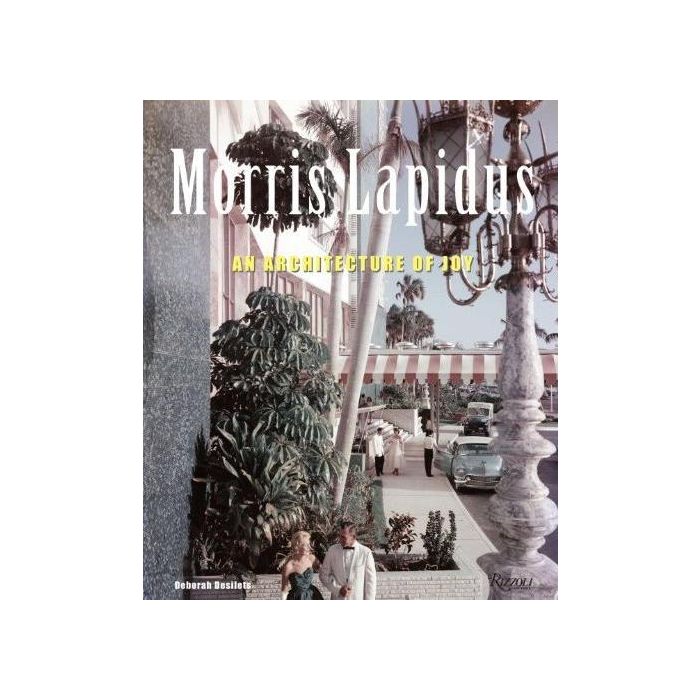My Cart
Your cart is empty
Looks like you haven't made your choice yet.
- Subtotal
Morris Lapidus

The Architecture of Joy
- Rizzoli
- Deborah Desilets
More Information
| Publisher | Rizzoli |
|---|---|
| ISBN | 9780847830886 |
| Author(s) | Deborah Desilets |
| Publication date | October 2010 |
| Edition | Hardback |
| Dimensions | 305 x 254 mm |
| Illustrations | 250 col.ill. |
| Pages | 256 |
| Language(s) | Eng. ed. |
Description
Adored for his exuberant and original architecture, more than fifty years of Morris Lapidus's designs are celebrated in this first-ever monograph. Known for inventing the postwar resort hotel with the Fontainebleau and the Eden Roc in Miami Beach, Morris Lapidus (1902-2001) is revered for his joyful interpretation of modernist tenets through an American vernacular of spectacle and whimsy. Lapidus enthusiastically embraced modernism's formal freedom and sensuality while rejecting its more rigid principles, producing a unique style that seamlessly blends baroque fantasia with modernism's clean lines and flowing spaces. His exuberant curving walls, zigzagging facades, and deft manipulation of space created dramatic forms that transform the moods of their occupants. In 2000 Lapidus was honored by the Cooper-Hewitt as an "American Original," an award created especially for him. This comprehensive volume presents the highlights of Lapidus's extraordinary career. From seductive modern shops and private residences to iconic hotels and residential towers in New York, Miami Beach, the Caribbean, and beyond, this iconoclast proves that "too much is never enough."

Morris Lapidus
